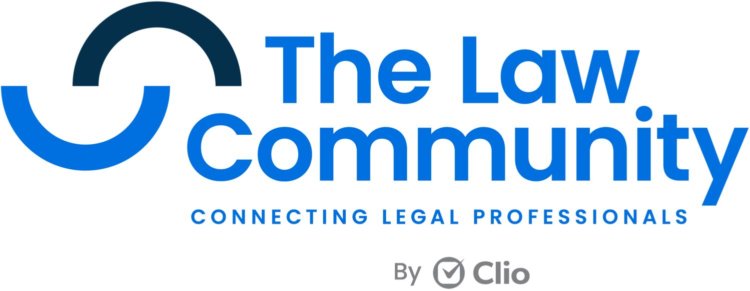Paralegal networking is challenging regardless of where you’re at in your career. Unsurprisingly, many professionals across all industries feel unenthusiastic about networking. The old-school exchanging of business cards just isn’t exciting. However, more modern networking opportunities do exist. From Facebook groups, events advertised in paralegal newsletters, to Meetups—paralegal networking can take many forms.
With all the long-term benefits networking has to offer, you’ll benefit from finding and sticking with the networking style that works best for you. Below are our finds for impactful authentic paralegal networking.
How do paralegals network?
There are a variety of options for paralegal networking. Whether you’re looking for in-person or online options, these can range from professional association committees, annual conventions, Meetup groups, social media pages, and more.

Network with ease: Practical paralegal networking tips
Leverage social media
Paralegal networking opportunities are infinite, especially in the digital depths of social media. From LinkedIn to Facebook, the opportunities to learn, grow, and connect are just a click away. While the keyboard and screen can connect you with people across varying time zones, digital paralegal networking might require more of a time input at first. Simply joining a group won’t provide you with many results. Engagement is key. Ask questions and participate in the group discussions. Put yourself out there and inquire if any members in your state/city might want to connect outside the group.
You may like these posts
Professional and legal associations
Professional paralegal associations strive to serve their members in various ways. From facilitating professional development and training to performing advocacy—associations have paralegals’ interests in mind. For many associations, this includes providing the space for meaningful paralegal networking.
If you’re in law school, associations often have designated services for students. Here’s a list of paralegal associations by state. Below are other associations you might consider exploring:
- National Association of Legal Assistants (NALA). Providing continuing education and professional development designed specifically to advance paralegals, NALA has been serving its members since 1975.
- The Association of Legal Administrators (ALA) was founded in 1971 to support professionals involved in the management of law firms, corporate legal departments, and government legal agencies.
- The American Bar Association (ABA) provides a directory of approved paralegal education programs and a Standing Committee on Paralegals.
Maintain relationships from paralegal school
If you’re a new graduate or a student, you should continue to invest in these relationships well into your working life. Friendships and professional relationships with teachers, guest speakers, and peers are precious.
Alternatively, suppose you’re years into your career. In that case, you can reconnect with your old college friends, instructors, or other legal and paralegal professionals you may have crossed paths with as a student. LinkedIn makes it easy to find individuals and reach out to them in a forward but professional way. Our LinkedIn for Lawyers blog contains tips for all legal professionals, including those looking to participate in paralegal networking.

Legal conferences and webinars
Legal-specific events set the stage for organic professional conversations. If you’re someone who prefers not to “put yourself out there,” a virtual event might be a great place to start. Below are some events which foster paralegal networking opportunities:
CLE courses
Paralegal CLE requirements vary by state. If you have credits to meet, consider taking virtual CLE courses or in-person classes with a colleague or paralegal friend. Alternatively, you can use this to reach out to someone you’ve met in a professional setting. Connect with them to see if they’d attend the CLE courses with you.
Conventions and conferences
The National Federation of Paralegal Associations hosts an annual convention. Also, the Clio Cloud Conference isn’t your typical webinar or virtual event—this is the best legal conference that thousands of legal professionals attend each year. The Clio Cloud Conference is designed to help you supercharge your practice and move the industry forward.
Study groups
Becoming a paralegal is no easy feat. If you’re a paralegal student, you know this better than anyone. Get the support you need by exploring your school’s forums, social media groups, or start your own. You could also help coordinate a study group or other social or networking opportunities. You can also reach out to professional paralegal associations for support.

The Law Community
The Law Community (TLC) is an online network built for legal professionals like yourself. This community is a space to learn, connect, and grow. Legal professionals from various practice areas share tips, ask questions, network, and gain new tech skills. This hub makes it easy for authentic paralegal networking to take place. There are even resources specifically for paralegals.
How to improve your paralegal networking skills
Practice active listening
Active listening, when done effectively, will help you earn the trust of those you’re conversing with and help you better understand their hopes, desires, and fears. Practicing patience and asking open-ended, follow-up questions are just a couple of ways to actively listen in instances of paralegal networking.
Foster empathy
Empathy is understanding how others feel and being compassionate toward them. Just as you might do exercises to build up specific muscle groups, you can apply that same principle to empathy. There are exercises you can do to strengthen your empathy muscle. The benefits of practicing empathy include enrich relationships—making this a key skill for paralegal networking.
Stay positive
Having a sunny disposition doesn’t come naturally to most people. But there are ways to flip your thinking. Practicing optimism is one of them. The benefits are immense and include supporting overall wellbeing, relationship building, and more. Practicing optimism and staying positive will likely help you thrive in social settings such as paralegal networking opportunities.
Communicating verbally and non-verbally
Have you ever thought about the way you communicate? The words, facial expressions, and body language you choose to share all play a pivotal role in communicating your thoughts and feelings. There are many ways to improve upon or adopt a new communication style that works optimally for you. Improving communication skills is a life-long journey for everyone. And, ultimately, practice makes perfect. You don’t have to wait for a networking interaction to test your new learnings. Strike up conversations in your day-to-day life and use these as learning opportunities. Lastly, confide in one or two individuals for honest feedback about your communication style(s) as you likely have strengths and weaknesses you wouldn’t be able to identify yourself due to personal bias.
Prepare a short line about yourself
It can be intimidating to sum up your entire life journey into a few words. However, the purpose of an engaging elevator pitch is to summarize who you are based on your goals and the environment you’re in. You can have more than one for different social settings. For example, the bit you tell someone about yourself in a networking environment will be different from what you would convey to a new friend at a party. Get clear on your goals for the specific interaction you’ll be engaging in and go from there. For example, if you’re a paralegal working in the family practice area and want to transition into the government sector, you might want to find a mentor who can support this move. Use your elevator pitch as a tool to communicate your strengths which would easily transfer to the government sector. Here are some examples of personal elevator pitches.
Follow up
Think of meeting and mingling as part of the networking process. The follow-up portion is equally as vital as it gives your new networking relationship the nourishment it needs to grow. You can be proactive about this—if a conversation with someone is going well, mentally note an item you can follow up with. Whether it’s a report you send or a unique take on an article that person mentioned, ensure it’s a thoughtful and natural invitation to engage further.
Make networking a part of your life
Cocktail parties, Zoom happy hours, running into old colleagues: Treat all of these as potential networking opportunities.

Practice your networking skills
Although rooted in formality, networking doesn’t have to be boring or inflexible. Casual encounters and meetups with like-minded legal professionals count as paralegal networking. We encourage you to apply the above on your paralegal networking journey but don’t feel limited.
If there’s something you want to join that doesn’t yet exist, it’s a signal to create it. This could mean starting a paralegal group for moms, a support network for BIPOC paralegals, a book club, LQBTQ advocacy group, wine tasting, recipe swapping etc.—draw on your interests and passions.
Ultimately, you should feel empowered to forge your own professional social connections in an authentic way that fits with your professional and personal goals. At the end of the day, it’s about finding your people and continuing to give your best work and self to the world.
We published this blog post in September 2021. Last updated: .
Categorized in: Business







